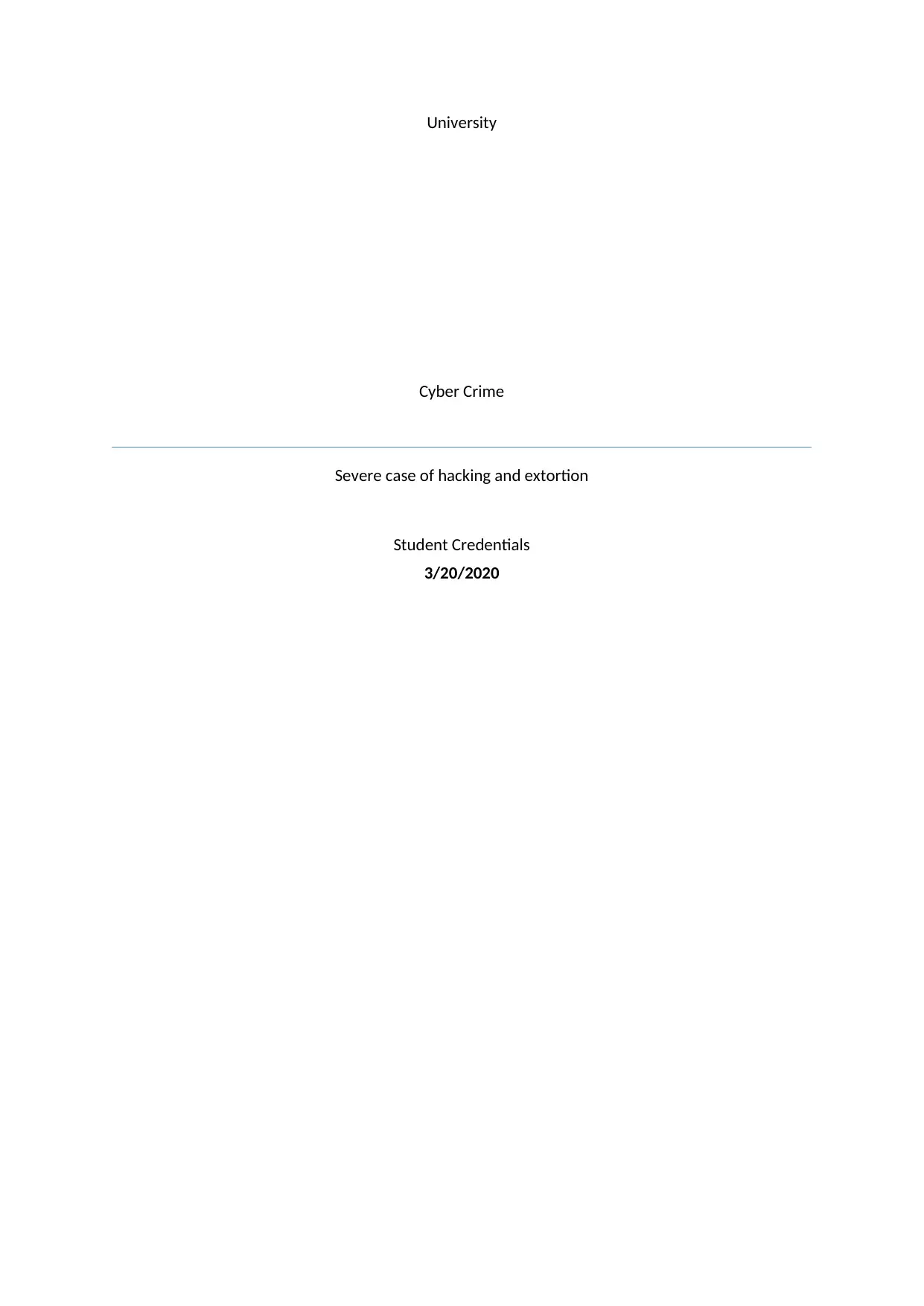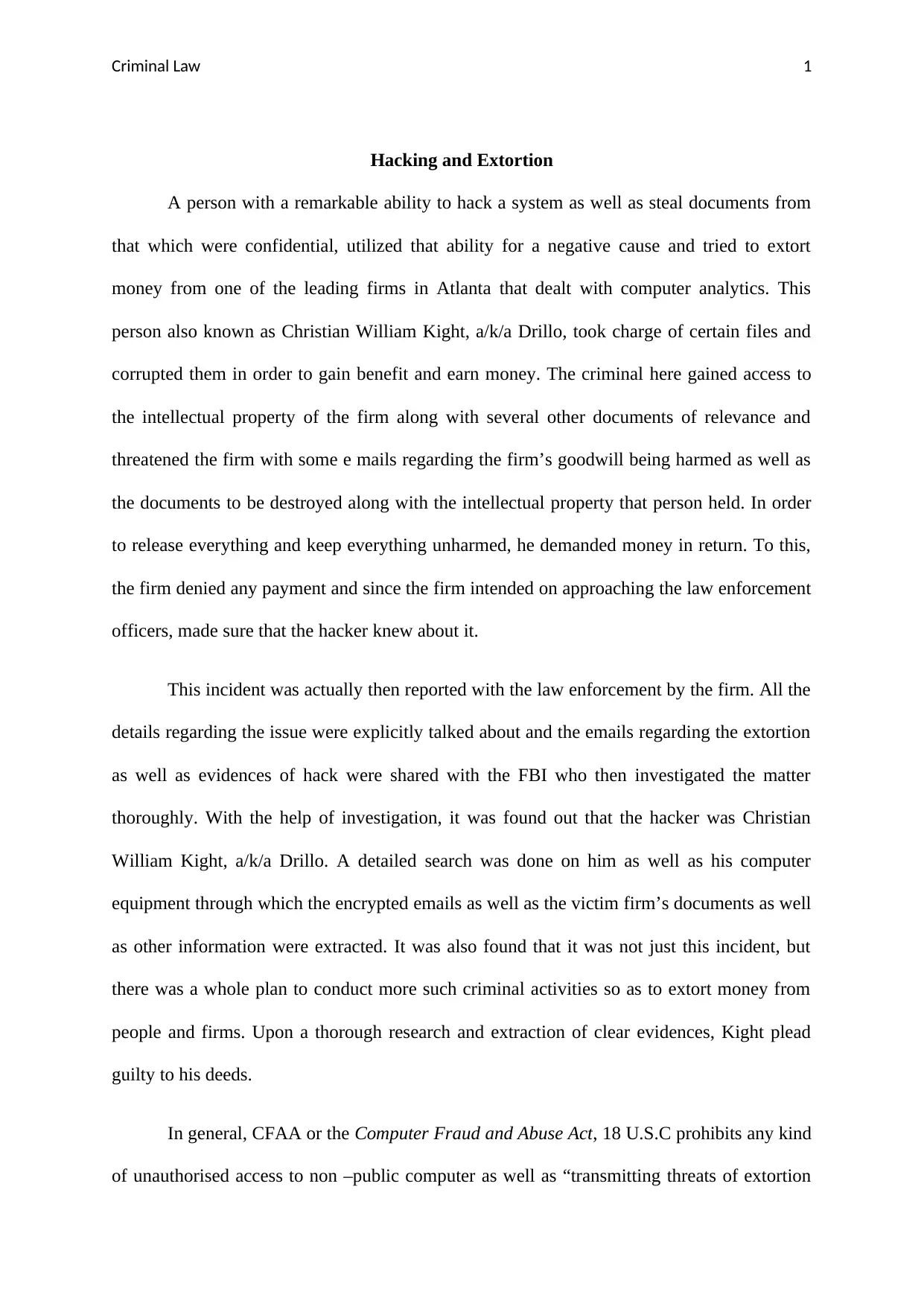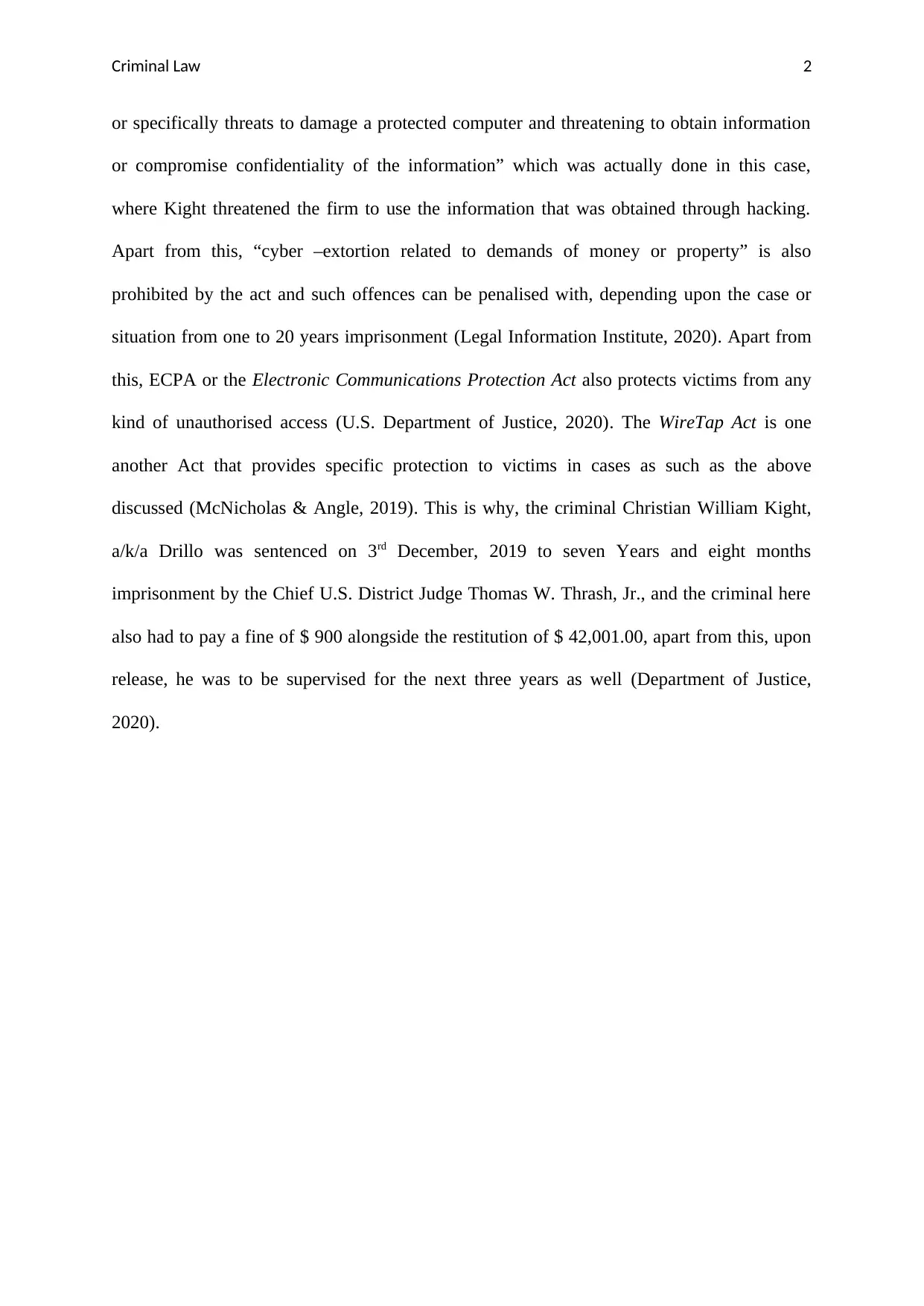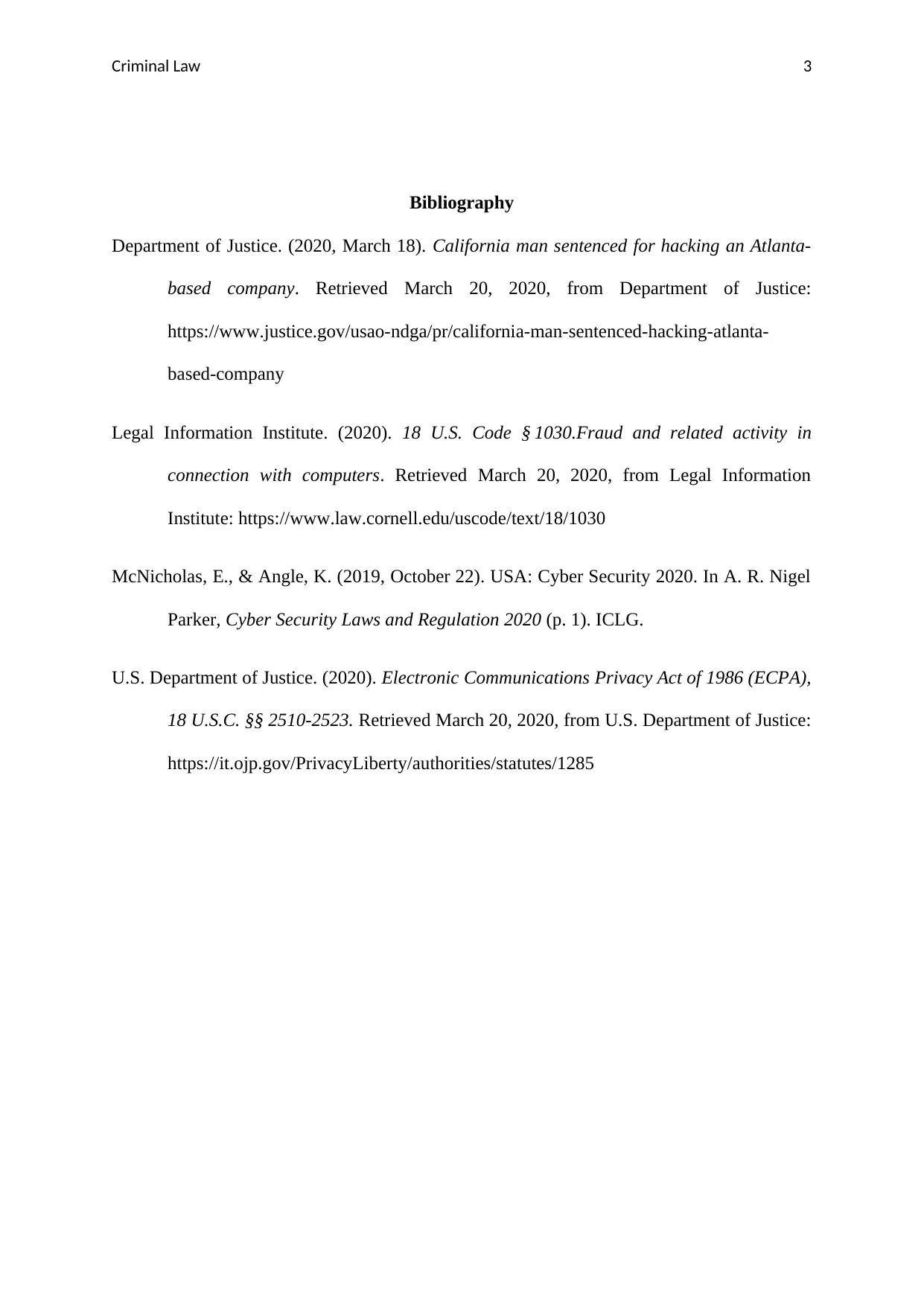University Cyber Crime Assignment: Hacking and Extortion Case Study
VerifiedAdded on 2022/08/22
|4
|763
|10
Homework Assignment
AI Summary
This assignment presents a detailed analysis of a cyber crime case involving hacking and extortion, focusing on the actions of Christian William Kight, also known as Drillo, who hacked into a computer analytics firm to steal confidential documents and extort money. The assignment outlines the criminal's methods, including gaining unauthorized access, corrupting files, and threatening the firm. It then relates the crime to key US laws, specifically the Computer Fraud and Abuse Act (CFAA), the Electronic Communications Protection Act (ECPA), and the Wiretap Act, explaining how these laws were violated. The case concludes with the criminal's arrest, sentencing (seven years and eight months imprisonment, a fine, and restitution), and supervision details, providing a practical application of legal concepts and cyber crime laws. The assignment uses APA format and cites relevant legal and governmental sources.
1 out of 4







![[object Object]](/_next/static/media/star-bottom.7253800d.svg)